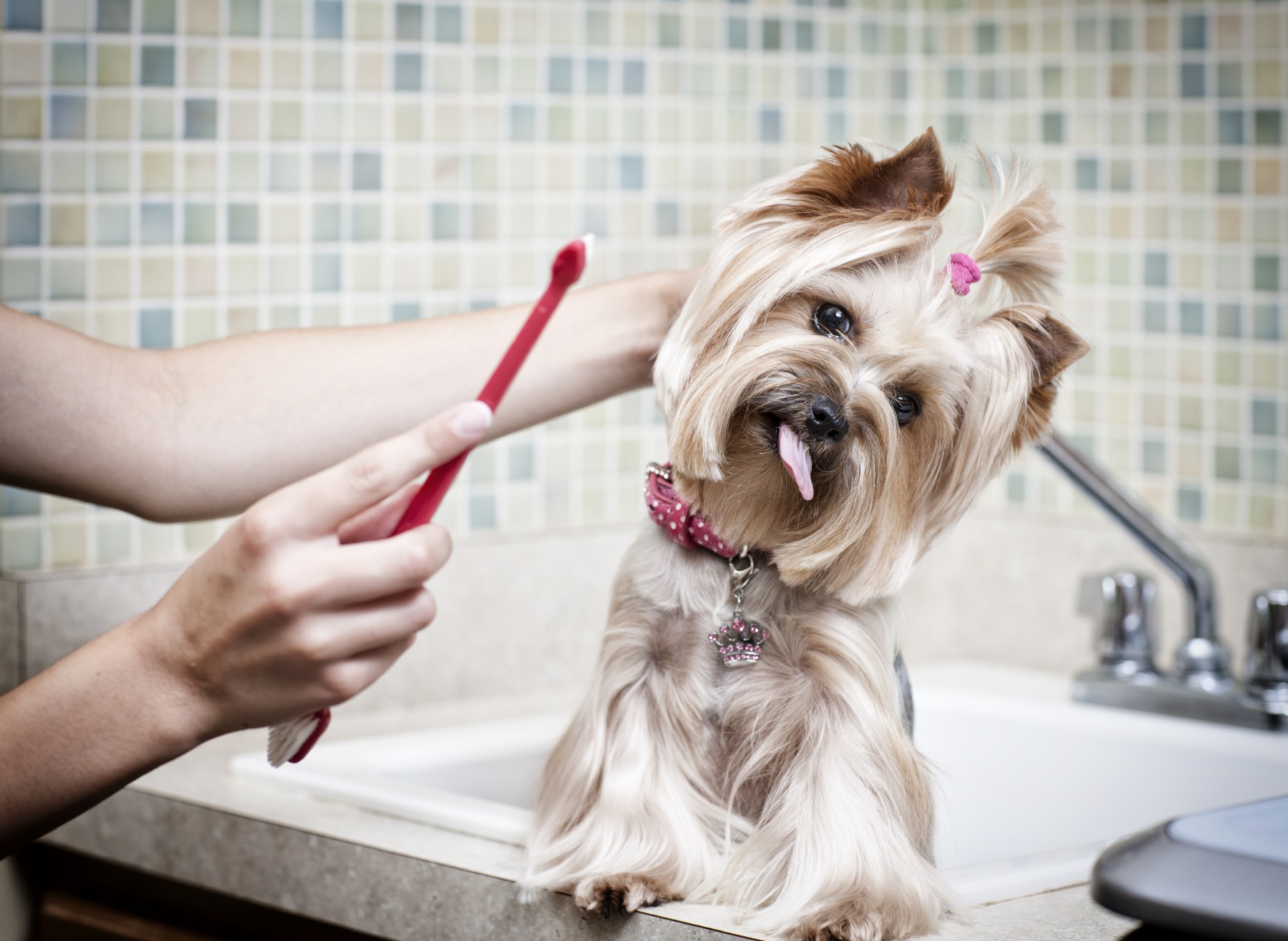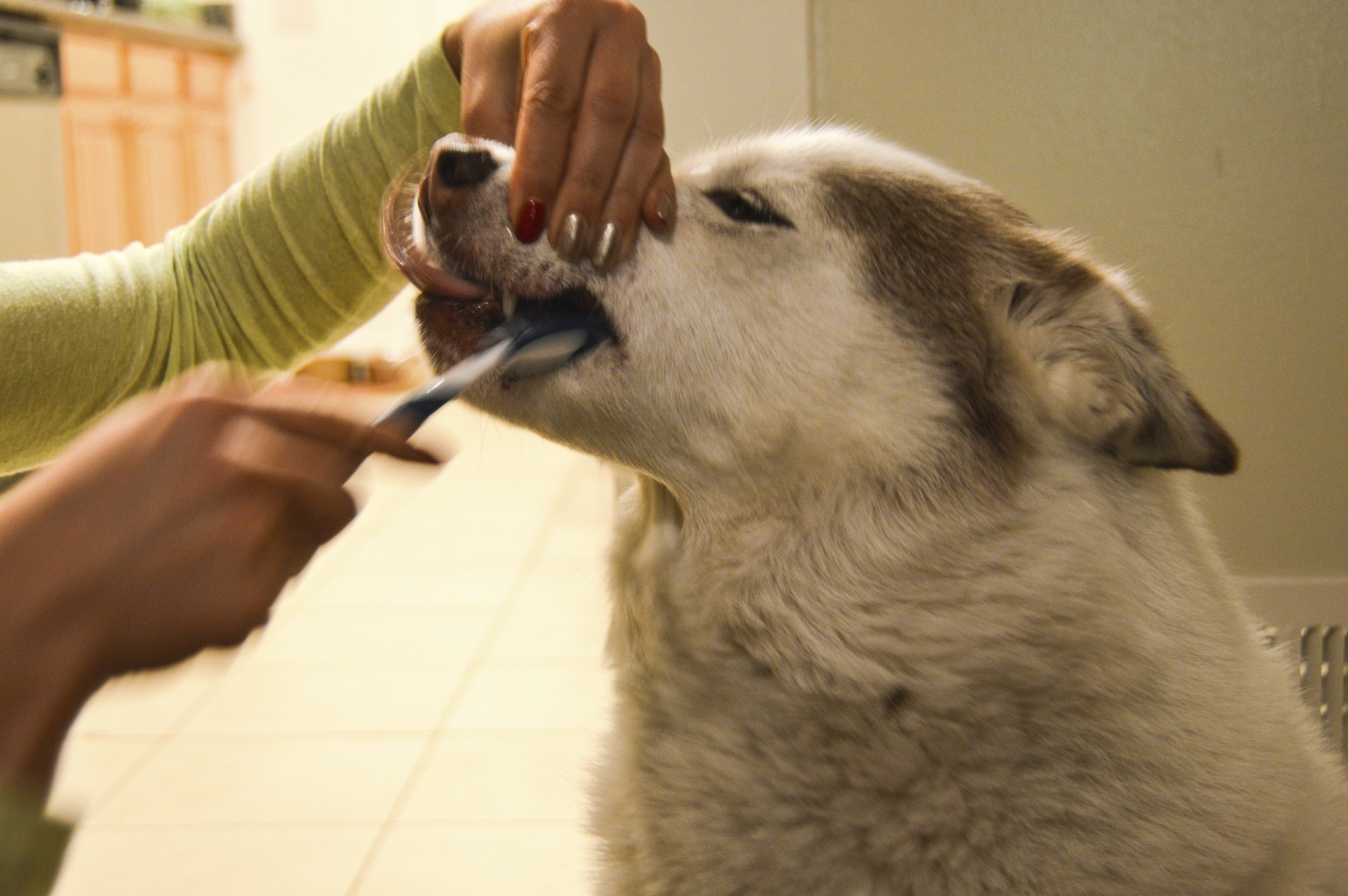Examining the Spectrum of Pet Dental Care
 There are many ways to support a healthy lifestyle for your pet, including regular exercise, proper nutrition, and disease prevention. Additionally, proactive pet dental care can add years to your pet’s life. Through a combination of thorough dental exams, professional cleanings, and diligent at-home brushing, your pet can achieve optimal health and live a fuller, happier life. Continue…
There are many ways to support a healthy lifestyle for your pet, including regular exercise, proper nutrition, and disease prevention. Additionally, proactive pet dental care can add years to your pet’s life. Through a combination of thorough dental exams, professional cleanings, and diligent at-home brushing, your pet can achieve optimal health and live a fuller, happier life. Continue…
Pet Dental Care: More Than Fresh Breath and a Pretty Smile
 One of the most neglected areas of pet care is dental hygiene. This includes providing a high-quality, nutritious food, brushing your pet’s teeth, and scheduling dental check-ups or wellness exams each year.
One of the most neglected areas of pet care is dental hygiene. This includes providing a high-quality, nutritious food, brushing your pet’s teeth, and scheduling dental check-ups or wellness exams each year.
Unfortunately, neglecting pet dental care can become a painful problem down the road, and long-term neglect and poor dental health can even shorten a pet’s life.
The Problem With Poor Oral Health
Although most of us prefer our pets have pleasant breath, lack of dental care can lead to far more serious problems.
First of all, periodontal disease is very common among pets, and sadly, most cats and dogs over the age of 3 struggle with it. Like us, plaque and tartar will develop over time without consistent brushing and professional cleanings. This build-up deteriorates the enamel and leads to decay.
Left untreated, dental disease can eventually result in tooth loss, abscesses, and infections. Over time, these infections can take their toll on the major organs of the body, including the kidneys, liver, and heart.
Addressing Pet Dental Care
So what exactly is pet dental care? For some, it means switching to kibble or throwing the occasional chew bone. However, these tactics do not actually address the dental care needs of your four-legged friend.
While there are some toys and safe ingestible chews that can help prevent plaque and tartar build-up, dental products alone will not keep your pet’s teeth healthy. In fact, some of these dental chews can cause tooth fractures and weight gain. If you choose to purchase these dental chews, we recommend looking for products approved by the Veterinary Oral Health Council (VOHC).
Key elements of good dental hygiene include:
- Using a specific toothbrush and toothpaste to brush your pet’s teeth (never use regular toothpaste since some ingredients can harm your pet).
- Scheduling routine dental exams and safe, professional cleanings at True Care Veterinary Hospital.
- Feeding your pet a balanced diet and avoiding table scraps and treats that are high-calorie but low in nutritional value.
- Offering the occasional VOHC-approved dental treat, toy, or chew.
- Making note of any changes to teeth and gum health. Pay special attention to foul breath, tooth loss, or bleeding from the gum line.
Dental health can easily be forgotten when routine wellness exams are neglected, which is one reason we stress the importance of these annual visits. As we have learned, healthy teeth and gums protect your pet from painful infections and diseases and can lengthen the lifespan of your beloved companion.
To schedule a dental consultation for your best fur friend, please contact the team at True Care today.

